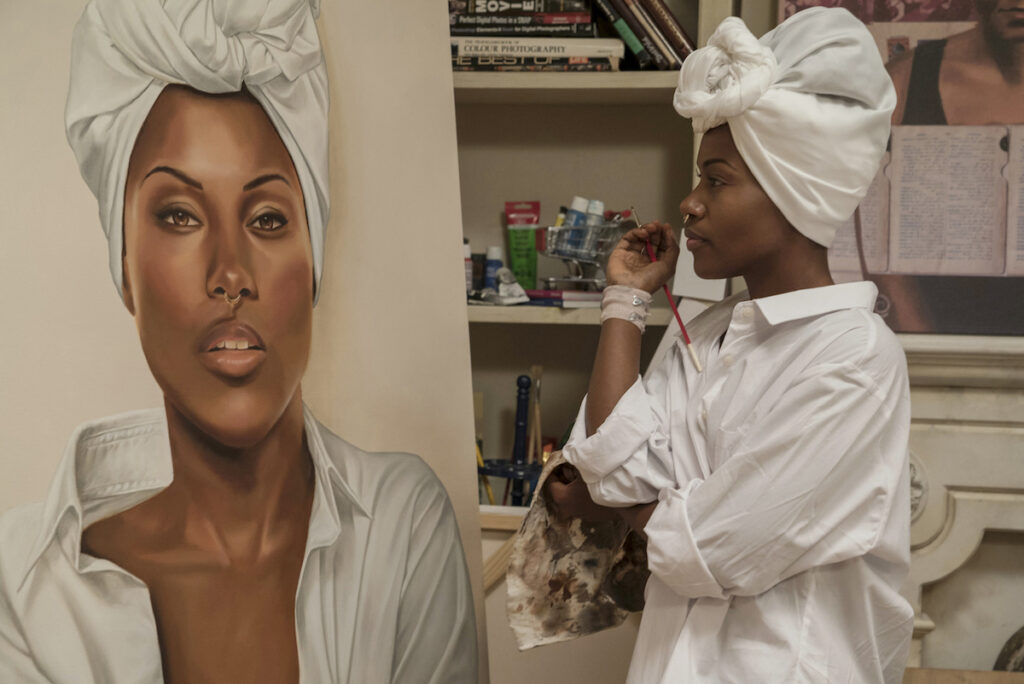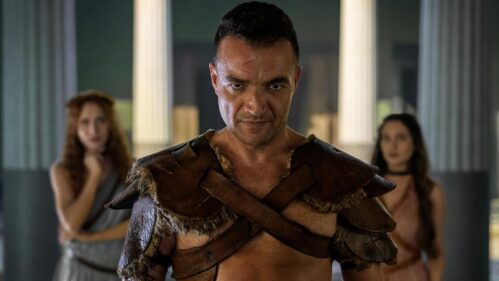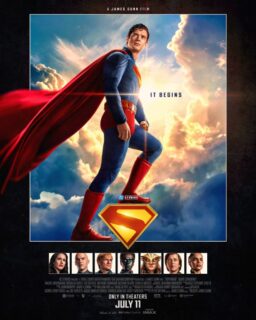It’s very possible that when Spike Lee offered Netflix the idea of a series adaptation of “She’s Gotta Have It,” his pitch was simply a presentation of the 1986 film. The bare bones for the story is there in his episodic, black & white feature debut—a Brooklynite in her late 20’s, Nola Darling, tries to establish her independence while juggling relationships with three wildly different men. There’s the stable business guy Jamie Overstreet, the giddy goofball Mars Blackmon, and the equally narcissistic and sexy Greer Childs. Each provide something special for her, but as she learns throughout the story, none of them complete her the way she can complete herself. Part of Lee bringing this story back to modern culture is like Michael Jordan returning to basketball, especially with so many other shows since Lee’s film trying to offer their own Nola Darlings: “Girls,” “Insecure,” “Fleabag,” “Master of None,” etc. But as this series triumphantly proves, part of this reboot is also that this current TV scene of cool, city-based 20, 30-somethings in crisis needs a tried-and-true, visual storyteller who isn’t afraid to go where popular TV doesn’t go. Lee still plays by his own rules, even when he’s rebooting the gaze of his own story.
Directing all ten episodes himself and working with a writer’s team (of mostly women), Lee has expanded his original script in a way that both evokes nostalgia but has its own consciousness in 2017. Some parts of his movie are explicitly re-used—scene concepts, bits of dialogue, black and white photographs, pieces of music—in a self-sampling along the lines of “if it ain’t broke, don’t fix it.” But this series has the benefit of fleshing out a true heroine within Nola by making it primarily her story, as she’s created to be a struggling, talented artist, a true cinephile (she’s even called “Sister Roger Ebert”), a friend, a daughter, even a bad tenant. The series is as much about her relationship with other black women, of similar experiences or of more wisdom, than it is the men who desire her. It is a saga about her independence, specifically as a woman of color and as an artist, with a strong narrative hook (the three relationships). The power of Nola Darling 2017 comes in part from a fascinating performance by DeWanda Wise, who captivates with her wall-breaking monologues, but also moments in which we feel a true emotional arc with her character: her sadness, her desires, her joy.
And though they are true supporting characters this time around, the three men have their own strength. Lyriq Bent owns the confident but conflicted stoicism of his Jamie character; Cleo Anthony nails the theatrical ridiculousness of how Greer Childs is utterly in love with himself; Anthony Ramos takes on the unenviable task of playing a character previously made iconic by Lee himself, even using the same introduction and some of the same jokes, and makes it the shoe-loving geek more endearing. The charisma of these men is matched by other characters who have less screen-time, but speak to something compelling within this world, like Chyna Lane’s Shemekka character, who is the focus of a disturbing subplot where her character gets butt injections in order to have what she thinks will be a better body. And the series is bound to have a new favorite in Lee’s canon with the character Raqueletta Moss (played by De’Adre Aziza), a schoolteacher who insists on talking about herself in the third person for a beautiful reason and provides a unique image of inner strength in the process.
As the show explores Nola’s life and choices at its own pace, there’s a sustainable, lingering quality, even when certain subplots drag, or the filmmaking pushes the idea of “raw” right next to the idea of plain clumsy. It’s almost like, so long as the storytelling has visual energy, as it often does (album covers that are shown on-screen after playing in full during previous scenes, bright text that pops on the screen like its saturated production design), “She’s Gotta Have It” offers an assured, pure fascination. It’s like strolling with a great filmmaker through neighborhoods he has become the master of, often warmed with the jazzy Americana of Bruce Hornsby’s piano score. So when Lee films a giant mural of his original Mars Blackmon character, you can’t entirely blame the vanity.
The series provides a great way for a creative like Lee to exercise ideas that may not have been able to fill a feature, but stir the pot with his special touch. Lee gives ample screen-time to topics like empowering street art, harrowing butt injections, double consciousness of race across generations, the trauma of assault (a specific addressing of the film’s poor handling of the topic), the gentrification of New York’s Fort Greene neighborhood, the self-proclaimed “freedom of the black female form” and others. So much to the point that periodically “She’s Gotta Have It” climaxes at scenes where characters have heavy-handed conversations you could find more commonly in PSAs about their respective topics (“How Not to Victim Blame,” “How to Engage the Media Value of Nicki Minaj” etc.). Lee also doesn’t shy away from hammy characters who are tone-deaf in various ways (which can make for some cringing comedy), or moments where Lee’s self-defined “free style” takes precedence over the storytelling, like a music video mourning Trump’s election that opens one of the later episodes.
But it’s all a strong reminder, while being told with such sincere urgency, of the bombastic, sermonizing quality in Lee’s stories. Ever since the confessional-style wall-breaking at the beginning of “She’s Gotta Have It,” we’ve been in the church of Lee, contemplating that brass knuckle power of love, hate, race and gender though his films, watching characters who provide equally down-to-Earth and fantastical versions of ourselves. His latest sermon, to be found on the small screen but with a scope bigger than most of his movies, will not lead people astray. It shows a master who continues to be just as inspired and necessary, 31 years later.












